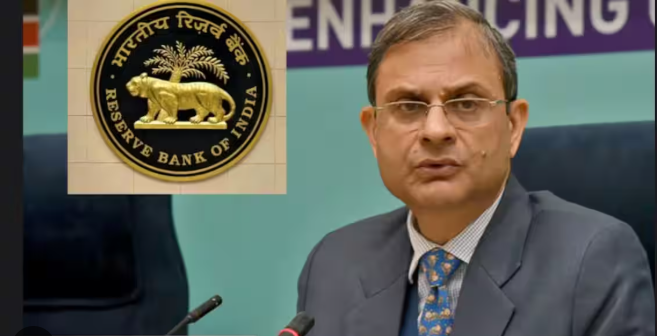Virendra Pandit
New Delhi: Former Union Revenue Secretary Sanjay Malhotra, who took charge as the 26th Governor of Reserve Bank of India (RBI) on Wednesday, said, the central bank, in its mandate, has given itself the theme of stability, trust, and growth.
“All these three are very important pillars which we need to continue building on,” he said in his first brief interaction with the media in Mumbai.
Reflecting on his new role, Malhotra described it as both an honor and a significant responsibility, adding that he would uphold the RBI’s legacy and take it forward.
The new RBI chief assured that decisions under his tenure would prioritize public welfare. “Stability in policy and continuity is very important. Decisions will be taken with public interest to preserve trust in this institution,” he said.
Emphasizing the importance of stability, Malhotra acknowledged the need for adaptability in a rapidly changing global environment. “We cannot be stuck. We have to be agile while maintaining policy continuity,” he asserted.
The new governor also reiterated the central bank’s key role in promoting financial inclusion through the banking sector and ensuring broader access to financial services to all sections of society.
He did not, however, take policy-related questions on his inauguration day. “I don’t want to start the Day One with bouncers, googlies, and Yorkers,” he remarked.
Malhotra, 56, an IAS officer of the Rajasthan cadre (1990 batch), had earlier worked as the Chairman and Managing Director of state-run Rural Electrification Corporation (REC) Ltd and has been instrumental towards achieving the recent buoyancy in tax collections.
The Centre has appointed him to the new post for three years. A former Secretary in the Department of Financial Services, Malhotra is credited for steering Life Insurance Corporation (LIC)’s record Rs. 21,000 crore IPO and advancing public sector banking reforms. Well-known as a “pro-reformist,” he combines technical expertise from IIT Kanpur, from where he graduated, and Princeton University, US, where he got his Masters’ in Public Policy, with a deep understanding of technology, and fiscal and monetary policies.
His appointment has come when India is facing a slowed-down growth in the second quarter of this financial year (FY25), amid inflation-related concerns and geopolitical uncertainties because of the ongoing wars in the Middle East and Ukraine. Although the central bank expects inflation to drop by the January-March quarter, consumer concerns remain.
He faces challenges including balancing inflation control with economic growth and managing the Indian rupee’s depreciation amid global dollar strength.
Last week, the RBI retained the repo rate at 6.5 percent but lowered the gross domestic product (GDP) growth forecast to 6.6 percent from 7.2 percent for the financial year 2024-25 (FY25). The central bank also expects food prices to keep inflation elevated in the third quarter of FY25.
The next meeting of the RBI’s Monetary Policy Committee (MPC) will be held from February 5 to 7, 2025.

